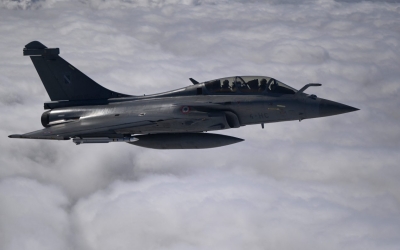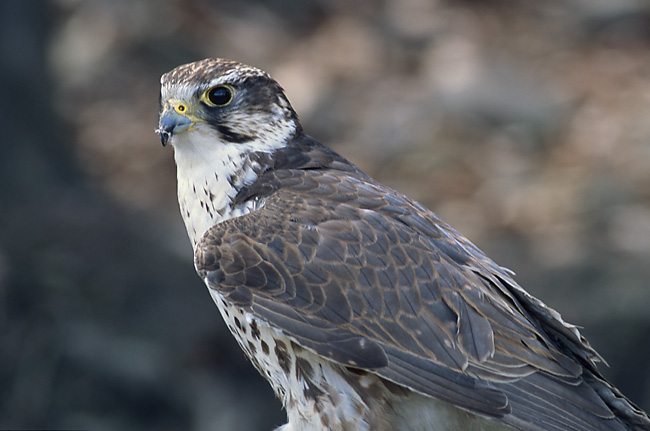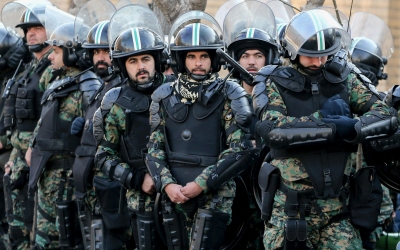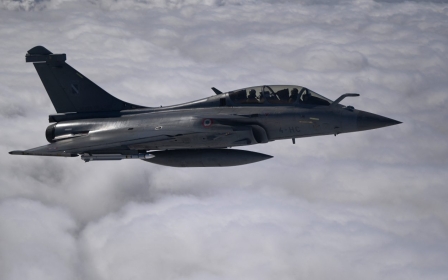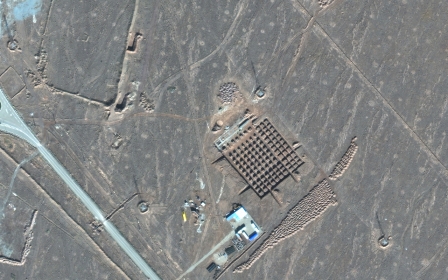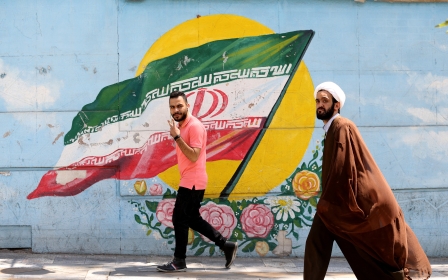Iranian press review: Tehran furious over France's 'destructive role' in nuclear talks
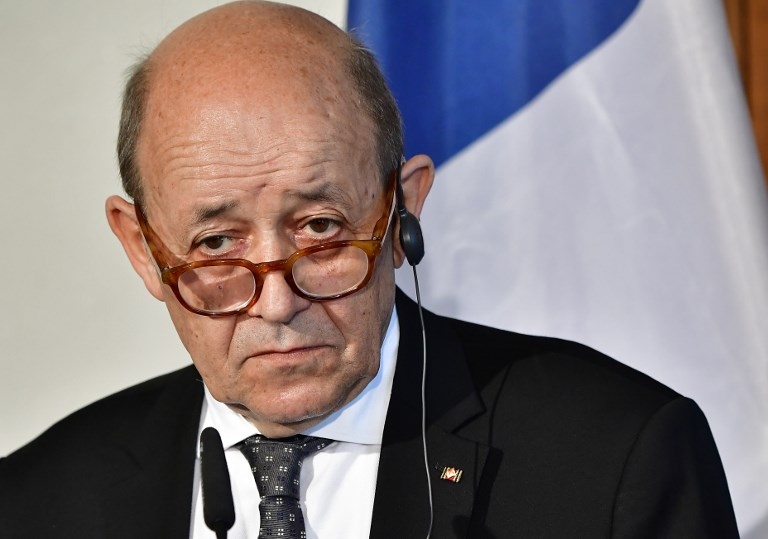
France using atomic deadlock to ink arms deals
Iranian officials have lambasted negative remarks by French officials about ongoing nuclear talks and criticised Paris' arms deals in the region.
The remarks comes as foreign policy experts in Tehran warned that France was impeding the nuclear negotiations in order to please its arms clients in the Middle East.
In response to Friday's $15bn deal for French warplanes between France and the United Arab Emirates (UAE), Iranian foreign ministry spokesman Saeed Khatibzadeh said that such deals would destabilise the region.
"Other countries should not forget the destructive and destabilising role that the activities of countries like France play in the region," Khatibzadeh was quoted as saying.
Meanwhile, Iranian foreign policy experts told the Donya-e Eqtesad daily that France was using the deadlock in the current nuclear talk in Vienna to ink new arms deals with wealthy Arab states.
Analyst Reza Nasri said: "France's Defensc Minister Jean-Yves Le Drian is known in his own country as 'the salesman' for the arms he sold to Egypt's general [Abdel Fattah] el-Sisi, Saudi Arabia and the Persian Gulf countries.
"Obviously, to make his customers happy, he would occasionally attempt to subvert the negotiations."
Rahmen Ghahremanpour, another analyst, suggested that France was aware that any agreement between Iran and world powers would result in a better relationship between Tehran and the Middle East's Arab states.
Ghahremanpour said such a result would make small Arab states less dependent on France's military and political support.
"Small states such as Qatar, the UAE, Bahrain, Kuwait and even Saudi Arabia will get closer to Iran if the negotiating parties reach an agreement," said Ghahremanpour.
"On the contrary, if the talks fail, those states will get closer to [world powers] like France," he added.
HIV patients neglected due to pandemic
Reports from local media indicate that pre-emptive government measures, screening tests and support mechanisms for patients infected by HIV have dramatically declined since the beginning of the cornavirus pandemic in Iran.
Mohammad Mehdi Gouya, the head of the infectious diseases office at the health ministry, confirmed that plans to control the spread of HIV had been halted in the country.
"After the pandemic, campaigns to identify individuals with HIV have reduced, as well as programmes to care for the patients," he was quoted as saying.
Since February 2020, when officials confirmed the first coronavirus cases in Iran, the country's health care system has been entirely focused on fighting the pandemic.
The appointment of Minoo Mohraz to Iran's national coronavirus task force was the clearest sign that healthcare officials had shifted their attention away from HIV patients.
Before the pandemic, Mohraz was the director of the Iranian Research Centre for HIV/Aids.
Falcons trafficked from Afghanistan freed
Six young Saker falcons that were trafficked from Afghanistan's western region and were en route to Arab states in the Gulf have been seized at the Dowqarun border crossing near Iran's eastern city of Taybad.
The Mehr news agency reported that the birds were freed following a court order.
According to local media, the driver of a van transferring passengers between Iran and Afghanistan had hidden the swaddled birds among the passengers' luggage.
The report added that the driver was a member of a circle of wildlife smugglers active in the Middle East.
Iranian citizens who attempt to smuggle the birds potentially face a $7,000 fine for each captured bird and a three-year prison sentence.
However, despite the option of the severe penalties, Iranian courts usually give perpetrators light sentences.
Saker falcons, which dwell in areas located between Iran and Afghanistan, are in high demand in Gulf states.
The ISNA news agency reported that each young Saker falcon could be sold for as much as $7,000 in Iran, however, that price is much higher in the Gulf.
In November 2020, Iran's judicial system news agency Mizan published a report about an auction in which a Saker falcon captured in Iran was sold for $54,900 in Qatar.
Increasing use of sewage water for irrigation
Environmental and nutrition specialists have warned that a water shortage in several large Iranian cities has led to an increase in the use of sewage water and untreated wastewater for irrigating vegetable fields.
While this was not the first time the issue has been raised, this time experts warned that the use of untreated water had reached an alarming level.
Last week, Iran's Young Journalists Club published a video captured by a citizen journalist showing highly polluted sewage water was being used in agricultural fields around Isfahan, Iran's third-largest city.
On Saturday, the Aftab daily also reported that an "environmental and health catastrophe" had occurred in Eslamshahr, one of Tehran Province's poorest regions.
"The catastrophe is so grave that the municipal civil servants and officials should act immediately to stop it," the newspaper quoted Hadigheh Asgharpour, a health official, as saying.
Eslamshahr is a satellite city in the south of the province, where much of the capital's raw wastewater ends up.
Vegetables sold in Tehran's grocery shops are mainly grown in Eslamshahr's agricultural fields.
*Iranian press review is a digest of news reports not independently verified as accurate by Middle East Eye
Middle East Eye propose une couverture et une analyse indépendantes et incomparables du Moyen-Orient, de l’Afrique du Nord et d’autres régions du monde. Pour en savoir plus sur la reprise de ce contenu et les frais qui s’appliquent, veuillez remplir ce formulaire [en anglais]. Pour en savoir plus sur MEE, cliquez ici [en anglais].


